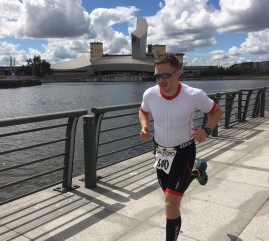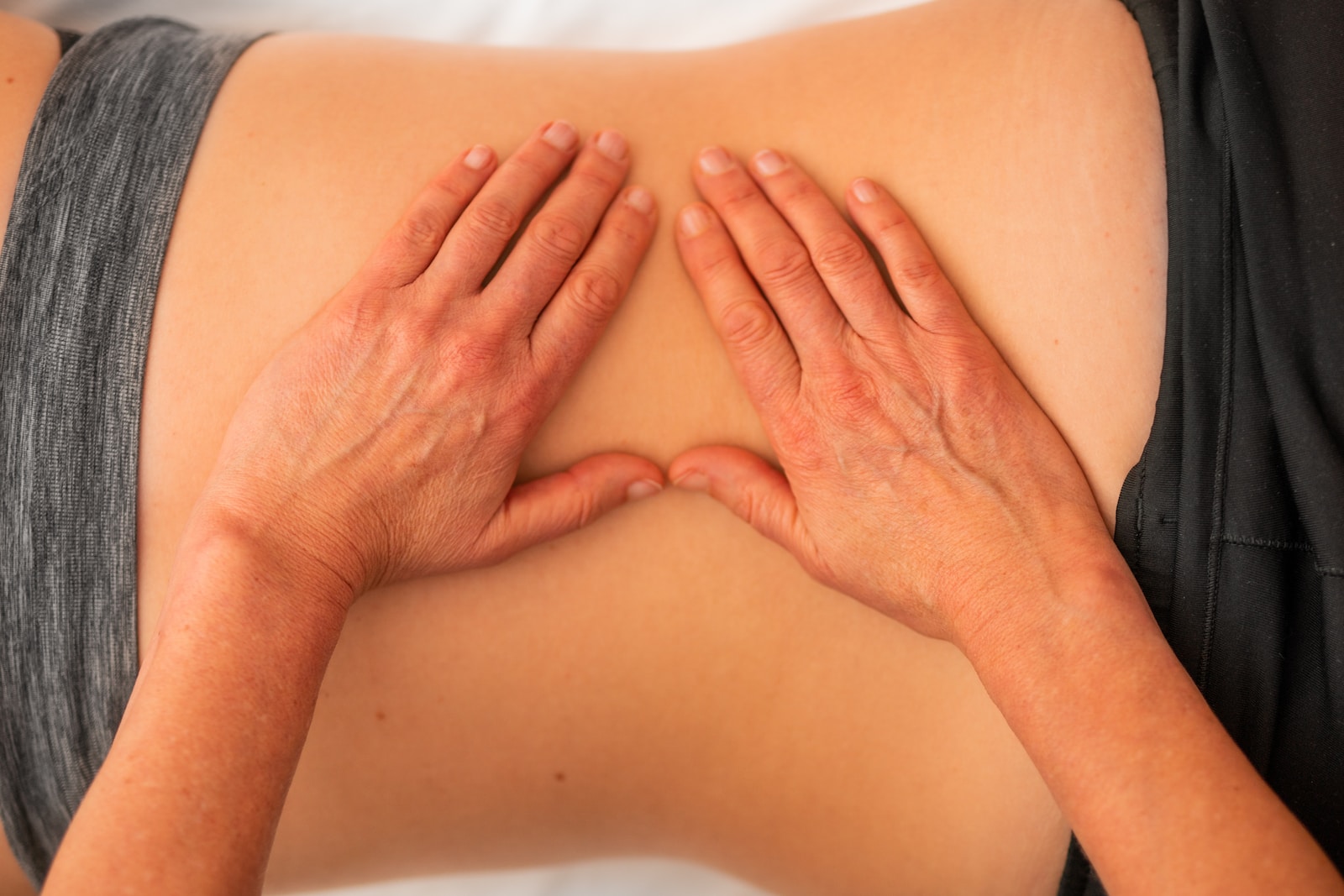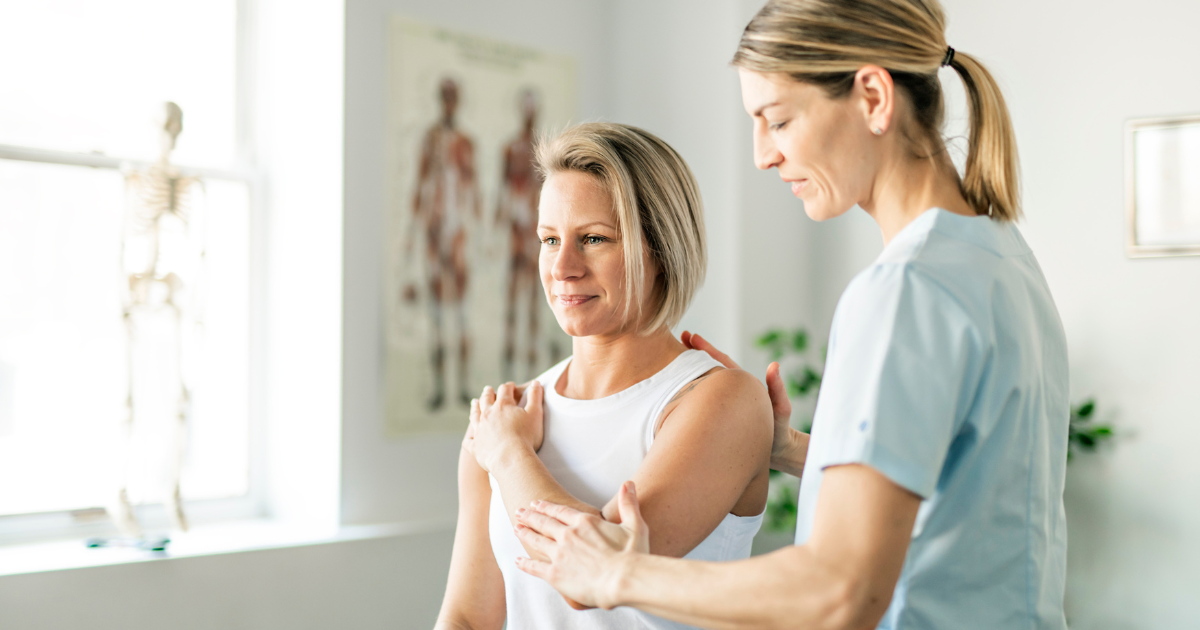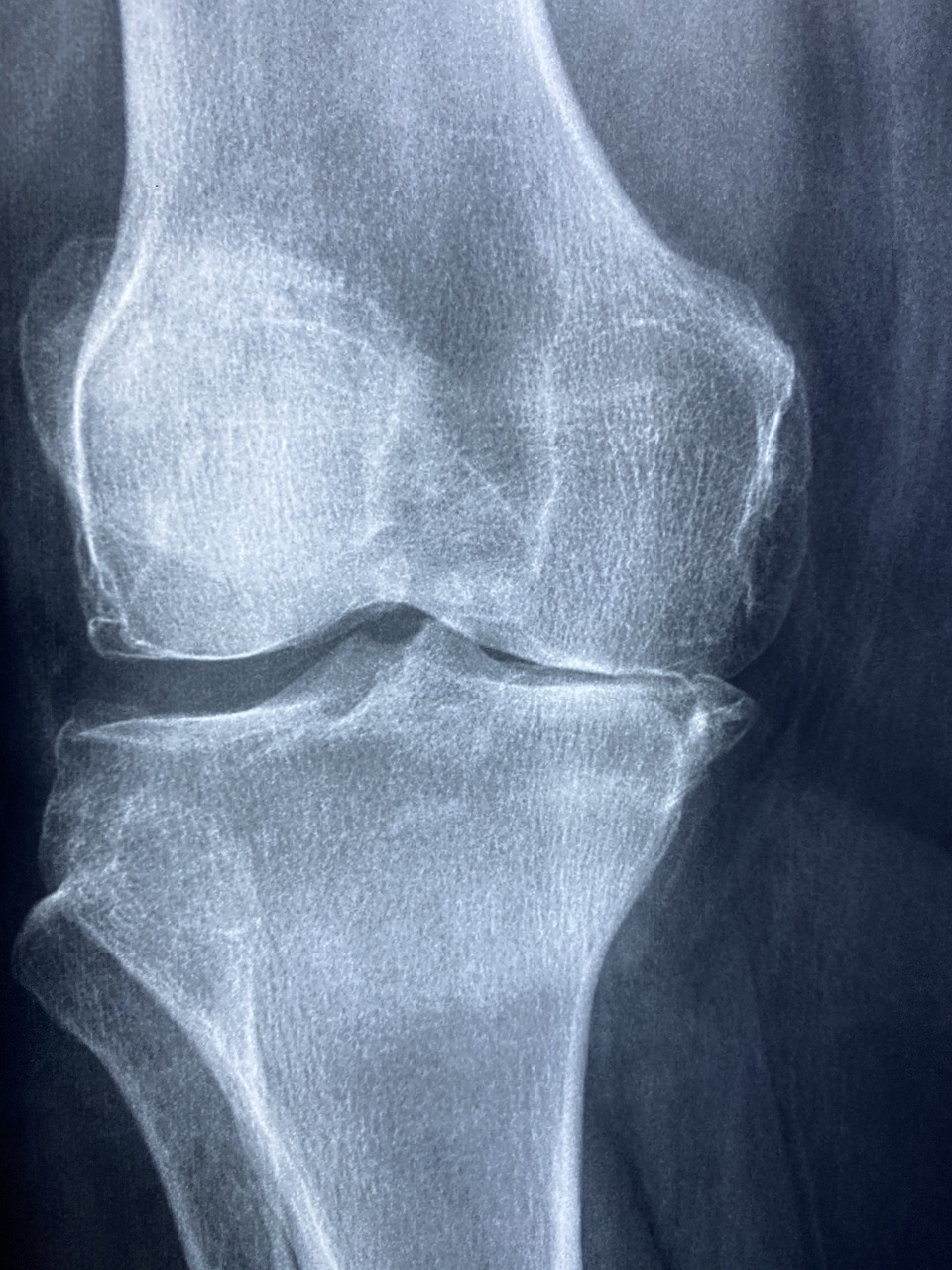Are you feeling the “Pressure” to run better? Do compression socks/calf sleeves work?
Team Summit recently supported the Bolton Community Half Marathon; it was great to see over 650 runners competing on the day. Surprisingly a huge number of competitors were wearing compression socks/calf sleeves. This made me question the science behind this.
I understand the theories of improved venous return, better recovery, “support” due to a previous calf injury and improved performance but question the science and benefit behind this.
I asked one of our elite amateur Ironman Triathletes Brain Fogarty why he wore compression socks when competing. His response was an interesting one “My coach informed me compression socks will improve my aerodynamics”. After hearing this I wanted to speak to a few more athletes who used compression socks. Who better to ask other than our own team member David Bossom, (yes that is him in the picture above). David competes in sprint distance triathlons on a regular basis. When I asked him his response was as follows, “they help me when taking my wetsuit off, preventing the wetsuit sticking to my ankles, and the socks help prevent cramp in calves”. Both the athletes I spoke to gave completely different reasons for wearing compression socks/calf sleeves so I wanted to delve a little deeper.
Lets look at what the science says….
Most of the current research looks at the effects on several different factors over a number of endurance running distances. A review by Engel et al. (2016) summarised these as:
• Physiological – (including: VO2 max, VO2 peak, blood lactate, post-exercise clearance of blood lactate, blood gases, cardiac parameters and inflammatory markers).
• Psychological – (rates of perceived exertion, perceived temperature and leg soreness)
• Biomechanics – during or after running (ground contact time, step frequency, step length, swing time).
• Performance – (time to exhaustion jump performance, maximal voluntary isometric contraction, peak leg power).
In the Engel et al. (2016) review, overall they found that compression garments had no significant effect on the physiological parameters over half marathon, 15km trail, 5 and 10km runs and 400m sprint distances. There were, however, small positive effects on running economy and biomechanical parameters, as well as a positive change in perceived exertion. Perceived exertion was also the main finding of Harnish et al.’s (2015) paper in which they concluded that they “show a psychological benefit and compression makes subjects feel less exhausted.
Another finding highlighted in the Engel et al.’s (2016) review was a positive effect on clearance of blood lactate, a small effect for post exercise levels of creatine kinase (a marker for muscle damage) and a large positive effect on post exercise leg soreness and delay onset of muscle fatigue (DOMS).
There was a suggestion in the Stickford et al. (2015) paper that different brands have different compression rates. Therefore, knowing which level of compression you are receiving depends on the brand and what the manufacturer says it is.
Another consideration is that most of the studies were based upon well-trained runners, not many were social club runners. Therefore most studies are calling for more research in this area and I am sure we will see more soon.
Conclusion
After speaking to a number of athletes who wear compressions socks/calf sleeves and looking at the current research I have come to the opinion and can conclude that compression socks/calf sleeves may not improve your performance greatly, but will help you reduce the feeling of muscle soreness post race.
I am extremely keen to hear more athletes’ reasons for wearing compression socks/calf sleeves along with your thoughts on the benefits to compression socks/calf sleeves. If you would like to share your opinions/thoughts please share them with us on twitter @physio_summit
Summit Approach
Summit’s philosophy is all about educating their clients on how to become more efficient when moving. We do this as part of our treatment and rehabilitation programmes aiming to help clients to prevent injuries and improve performance. As part of this service, we offer a running based Movement Screen called the Running Matrix. If you are looking to improve your efficiency, reduce the risk of injury or correct any pre-existing niggles, look no further we can help you. For more information please contact us on 0800 731 2738 or visit our website SummitPhysio
References:
Harnisch, M; Klepser, A; Classen, E; Beringer, J & Schmidt, A. (2015). Influence of sports compression textiles on endurance running performance. Extreme Physiology & Medicine.
Stickford, A; Chapman, R; Johnston, J & Stager, J. (2015). Lower-leg compression, Running Mechanics, and Economy in Trained Distance Runners. International Journal of Sports Physiology and Performance. 10. 76-83.
Engel, F; Holmberg, H & Sperlich, B. (2016). Is there Evidence that runners can benefit from wearing compression clothing. Sports med



